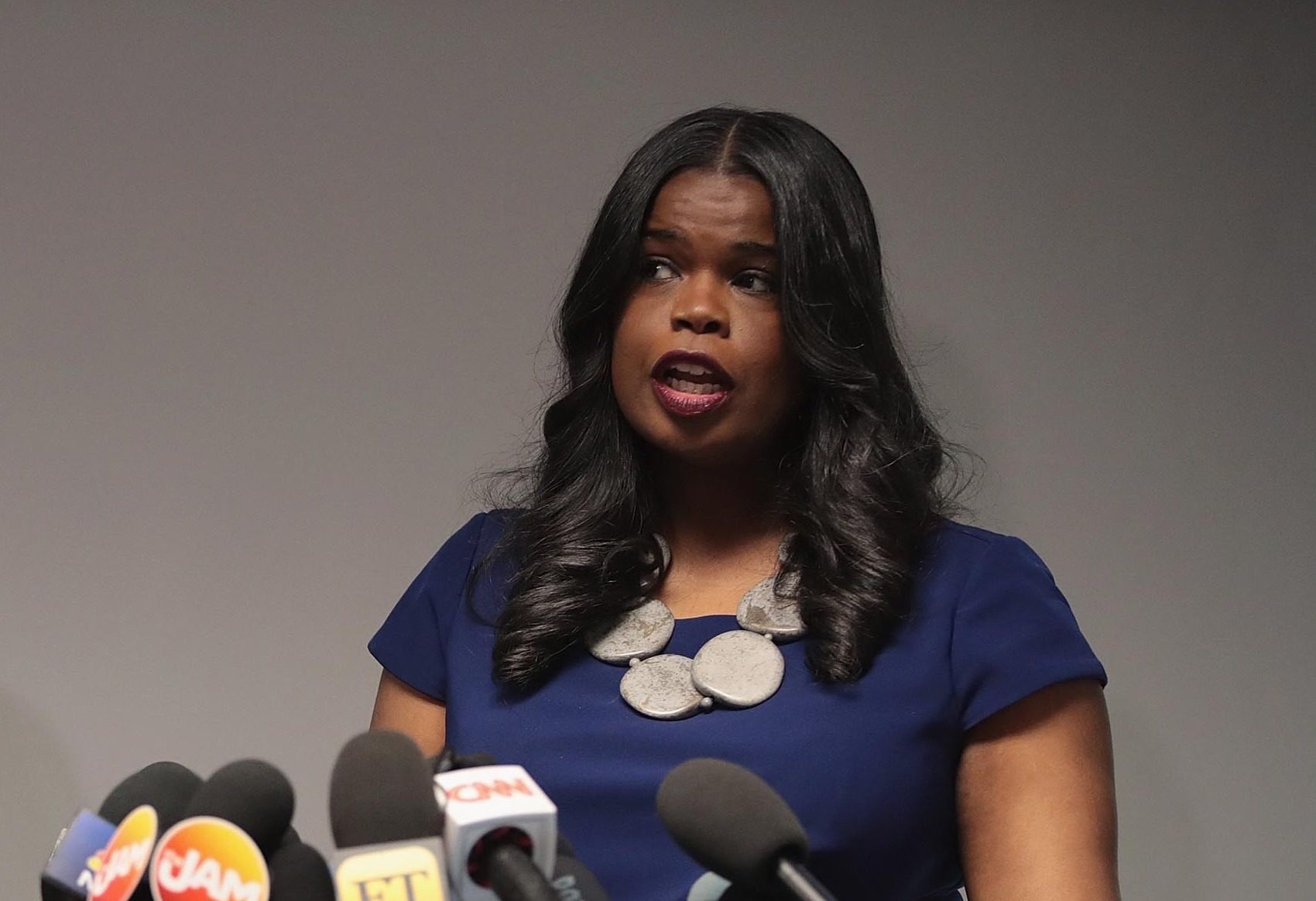Political Report
Kim Foxx Defeats Three Challengers in Re-Election Bid as Chicago’s Chief Prosecutor
Foxx claimed a mandate for criminal justice reform after securing the Democratic nomination in Cook County tonight. She will be favored in the general election.

Foxx claimed a mandate for criminal justice reform after securing the Democratic nomination in Cook County tonight. She will be favored in the general election.
Cook County State’s Attorney Kim Foxx—the first Black woman to hold her office and one of the nation’s most prominent reform prosecutors—won a hotly-contested Democratic primary Tuesday night.
“Tonight the voters have once again spoken and are calling us to continue our mandate of criminal justice reform,” Foxx said in her speech claiming victory. “They are calling us to continue to make Cook County a model for our country. I pledge to keep pushing for that change.”
Foxx weathered a challenge from three opponents in the primary. Bill Conway—a former assistant state’s attorney and current finance professor—received $10.5 million from his father, William E. Conway, co-founder of the private equity Carlyle Group, in a bid to unseat Foxx, but the money didn’t do the trick: the younger Conway called Foxx to concede around 9:30 p.m. As of publication, Foxx had 50.42 percent of the vote to Conway’s 31.22, with more than 94 percent of precincts reporting. Former Assistant State’s Attorney Donna More, endorsed by the Chicago Tribune and the suburban Daily Herald, had 13 percent of the vote, and former alderman Bob Fioretti, endorsed by the local Fraternal Order of Police, had five. Within Chicago’s city limits, Foxx was winning a decisive majority of 58 percent of the vote with 91 percent of precincts reporting; in the suburbs, she received 48 percent of the vote.
Due to the COVID-19 crisis, election day was marked by chaos. Governor J.B. Pritzker had ordered Illinois restaurants and bars to close Monday and schools to close Tuesday, but the election proceeded, prompting conflict between local election officials and the governor. Many polling sites abruptly closed and those that stayed open saw especially low turnout, according to the Sun Times.
Tuesday’s election was viewed as a test for the national movement to elect prosecutors committed to criminal justice reform. Foxx is one of the first progressive prosecutors to face re-election, and allies from elsewhere in the country expressed satisfaction at the result on Tuesday.
Foxx was swept into office in 2016 as voters decisively rejected her tough-on-crime predecessor, Anita Alvarez, who had participated in covering up the police shooting of Black teenager Laquan McDonald.
As state’s attorney, Foxx helped lower the incarceration rate, sharply reducing prison admissions by 19 percent in 2018. She implemented reform policies aimed at reducing charging and sentencing for low-level offenses, such as retail theft and drug possession, and pursued bail reform. One 2019 study found she had declined to file felony charges in more than 5,000 cases that would likely have been pursued by her predecessor. She also contributed to expunging low-level marijauna convictions, implemented new transparency initiatives, and vacated over a hundred wrongful convictions.
Throughout the primary season, Foxx faced consistent questions and attacks from opponents over her office’s handling of the case of Jussie Smollett, an actor who allegedly faked a hate crime; Foxx’s office dropped all charges against Smollett abruptly last spring, prompting outrage. A special prosecutor appointed to investigate the situation re-indicted Smollett on six counts in mid February, adding more fuel to the controversy.
Foxx and supporters said that the heavy focus on Smollett was part of a racist backlash to her reforms. She pulled together a wide spectrum of endorsements, including from Pritzker; Chicago Mayor Lori Lightfoot; local labor groups like the Chicago Teacher’s Union; and national figures like U.S. Senators Bernie Sanders, Elizabeth Warren, and Kamala Harris. While the local activists who helped get her into office have sometimes opposed Foxx’s record from the left, many still supported her bid against less reform-minded challengers. A #CancelConway campaign—seemingly in the style of 2016’s #ByeAnita campaign against Alvarez—ran ads on multiple online platforms, and the hashtag gained steam on social media in the days before the race.
Two other reform candidates did not fare as well in other parts of the state. In Kane County, a populous jurisdiction in the Chicago suburbs, Junaid Afeef told The Appeal in December that he was running on his background as a public defender and civil rights attorney to champion systemic changes; he lost the Democratic nomination to Jamie Mosser, a prosecutor who did emphasize a goal of setting new diversion opportunities. In Peoria County, newly-appointed incumbent Joni Hoos defeated Chris McCall, a former prosecutor who ran on changing “the status quo.”
Foxx will face Republican primary winner Pat O’Brien, a former judge and assistant state’s attorney, in November. In heavily Democratic Cook County, the Democratic primary usually determines the ultimate winner in countywide races, though the Smollett controversy and pushback from police groups could make the race tighter than usual. Cook County’s last Republican state’s attorney was Jack O’Malley, who served in the early ‘90s.
